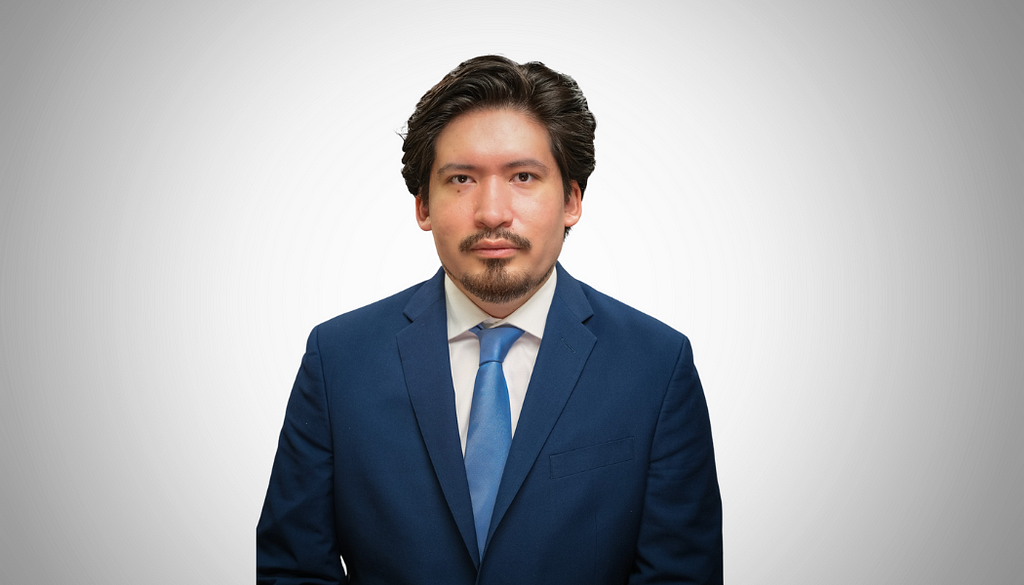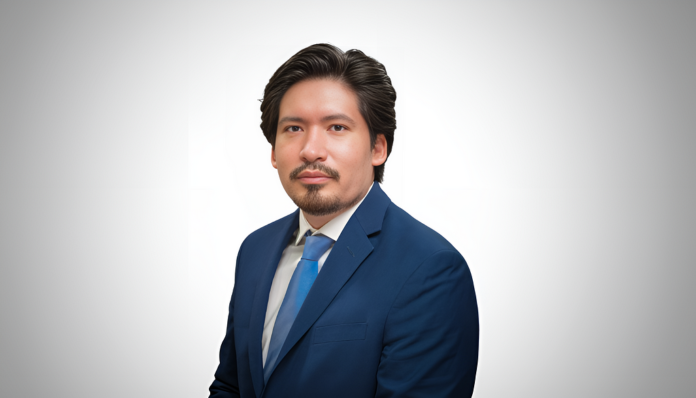…Just Start: If you’re unsure where to begin, just take the first step, even if it feels imperfect. Often, once you get moving, things start falling into place. I’ve experienced this when tackling new, complex problems that felt overwhelming at first…
As part of my series about “individuals and organizations making an important social impact”, I had the pleasure of interviewing Miguel Rocha. Miguel Rocha is dedicated to improving efficiencies and driving economic growth by empowering small businesses across America. With degrees in Physics from the University of British Columbia and Finance from the University of Miami, he combines analytical expertise and technological innovation to streamline operations, reduce costs, and optimize decision-making. His work has delivered measurable economic impacts, including significant cost savings for businesses and enhanced productivity, enabling small enterprises to scale and compete more effectively.
Thank you so much for joining us in this interview series! Can you tell us a story about what brought you to this specific career path?
My career path has been driven by curiosity. Like many people, I was initially unsure about what to study in college. I leaned towards physics in high school due to my interest in understanding how things work, and physics offered a great foundation for that.
During my studies, I was introduced to various technologies and developed my critical thinking skills, though I didn’t fully realize their significance at the time. Once I began working, I recognized opportunities to improve processes using the knowledge I had gained, leading to the realization that I could apply it outside of my studies.
Over time, I directed my focus towards business, particularly in finance, after an increased interest in the financial markets. Entering this field has allowed me to tackle new challenges, continuously develop my skills, and contribute to enhancing business efficiency.
It has been said that our mistakes can be our greatest teachers. Can you share a story about the funniest mistake you made when you were first starting? Can you tell us what lesson you learned from that?
Early on, I pushed myself too hard and learned firsthand about burnout. I would work on a project for months and sometimes get stuck for days on a part without making progress. I realized that taking breaks is essential; returning to a problem with a fresh perspective often makes a huge difference.
I also learned the importance of asking for help. It’s impossible to know all the answers, and sometimes just talking through a problem with someone else can lead to a solution. Often, simply explaining the issue helped me see the solution on my own after laying out the problem, as I could visualize it from another angle.
Can you describe how you or your organization is making a significant social impact?
I aim to make work more efficient by removing redundancies, allowing people to focus on tasks that require deeper thought and creativity. Throughout my studies and career, I have pursued this goal by creating solutions that maximize productivity and reduce unnecessary effort. For example, in my first job in logistics, I developed a program that generated up-to-date reports on material consumption. This automated a repetitive task, freeing up my team to focus on more valuable work.
Can you tell us a story about a particular individual who was impacted or helped by your cause?
During my master’s program, a classmate asked me to use a platform I created for part of their project. Even though it was just one person at the time, it was exciting to see someone find value in something I had built. I felt gratified that it didn’t detract from their learning experience but rather enhanced it by allowing them to focus on the substance of their project while I took care of the mechanical aspects.
Are there three things the community/society/politicians can do to help you address the root of the problem you are trying to solve?
- Lower Educational Costs: Accessible programs and courses are essential. While there are many free resources online, in-person learning is more effective for some people (myself included). These programs should be more affordable, with basic programs offered at low or no cost to reduce reliance on debt. Government subsidies for foundational courses could make this possible.
- Incentives for Foreign Talent: The U.S. attracts talent from around the world, but retaining it can be challenging. The immigration process for international students and professionals is often stressful and lengthy. Streamlining immigration for those pursuing educational and career opportunities would encourage innovation and help secure the U.S.’s position as a hub for talent.
- Foster a Culture of Innovation: Miami, for example, is actively encouraging the growth of technology and finance sectors, creating new opportunities for locals. This approach fosters a culture of learning and adaptation, with people developing skills to stay competitive. By supporting such initiatives, communities can enable individuals to gain the tools needed to solve emerging challenges.
How do you define “Leadership”? Can you explain what you mean or give an example?
Leadership isn’t always about being in the spotlight. A good leader has the ability to guide a team to reach their potential without pushing them beyond their capabilities. Effective leadership involves understanding each team member’s strengths and helping them contribute in ways that align with those strengths.
The best approach to achieving a goal is one that feels rewarding to everyone involved. Being a leader means bringing out the best in your team, not by giving orders, but by empowering them to solve problems independently and collaboratively.

What are your “5 things I wish someone told me when I first started” and why. Please share a story or example for each.
- Just Start: If you’re unsure where to begin, just take the first step, even if it feels imperfect. Often, once you get moving, things start falling into place. I’ve experienced this when tackling new, complex problems that felt overwhelming at first.
- Be Patient: Progress takes time. Don’t panic if your project seems slow. Many successful ventures, like Amazon, took years to become profitable. Knowing this helped me stay resilient through slow-moving projects.
- Opportunities for Solutions: There’s always room for improvement, even if you’re not the first to tackle an issue. For me, focusing on “how” rather than “who did it first” has made solving problems less daunting and more rewarding.
- Seek Help: There are always people willing to support you. Early in my career, I hesitated to ask for help, but I learned that reaching out often leads to quicker, better solutions and valuable learning experiences.
- Start Simple: Setting smaller, realistic goals prevents burnout and helps maintain long-term commitment. Instead of overwhelming myself with big expectations, I now set incremental goals to stay motivated and see steady progress.
You are a person of enormous influence. If you could inspire a movement that would bring the most amount of good to the most amount of people, what would that be? You never know what your idea can trigger. 🙂
A movement focused on widespread technology adoption. With the increasing accessibility of technology and AI, people should be encouraged to learn how to use these tools effectively. This would accelerate advancements across all industries, driving exponential growth and benefiting society as a whole.
Can you please give us your favorite “Life Lesson Quote”? Can you share how that was relevant to you in your life?
“Life is like riding a bicycle. To keep your balance, you must keep moving.” — Albert Einstein
This quote resonates with me because it reminds me that progress, even if slow, is essential. In both personal and professional life, I’ve found that staying active and adaptable helps me navigate challenges and keeps me moving forward.
Is there a person in the world, or in the US with whom you would like to have a private breakfast or lunch with, and why? He or she might just see this, especially if we tag them. 🙂
Jeff Bezos. I’d love to hear his story from a perspective beyond what’s shown in the media. His resilience in guiding Amazon through the dot-com bubble and near bankruptcy, while convincing investors of its long-term profitability based on his vision and determination, is truly remarkable.
How can our readers further follow your work online?
They can look at my Linkedin at www.linkedin.com/rocha-miguel or see my current project at www.unitrade.us
This was very meaningful, thank you so much. We wish you only continued success in your great work!
Social Impact Heroes: Why & How Miguel Rocha Is Helping To Change Our World was originally published in Authority Magazine on Medium, where people are continuing the conversation by highlighting and responding to this story.


